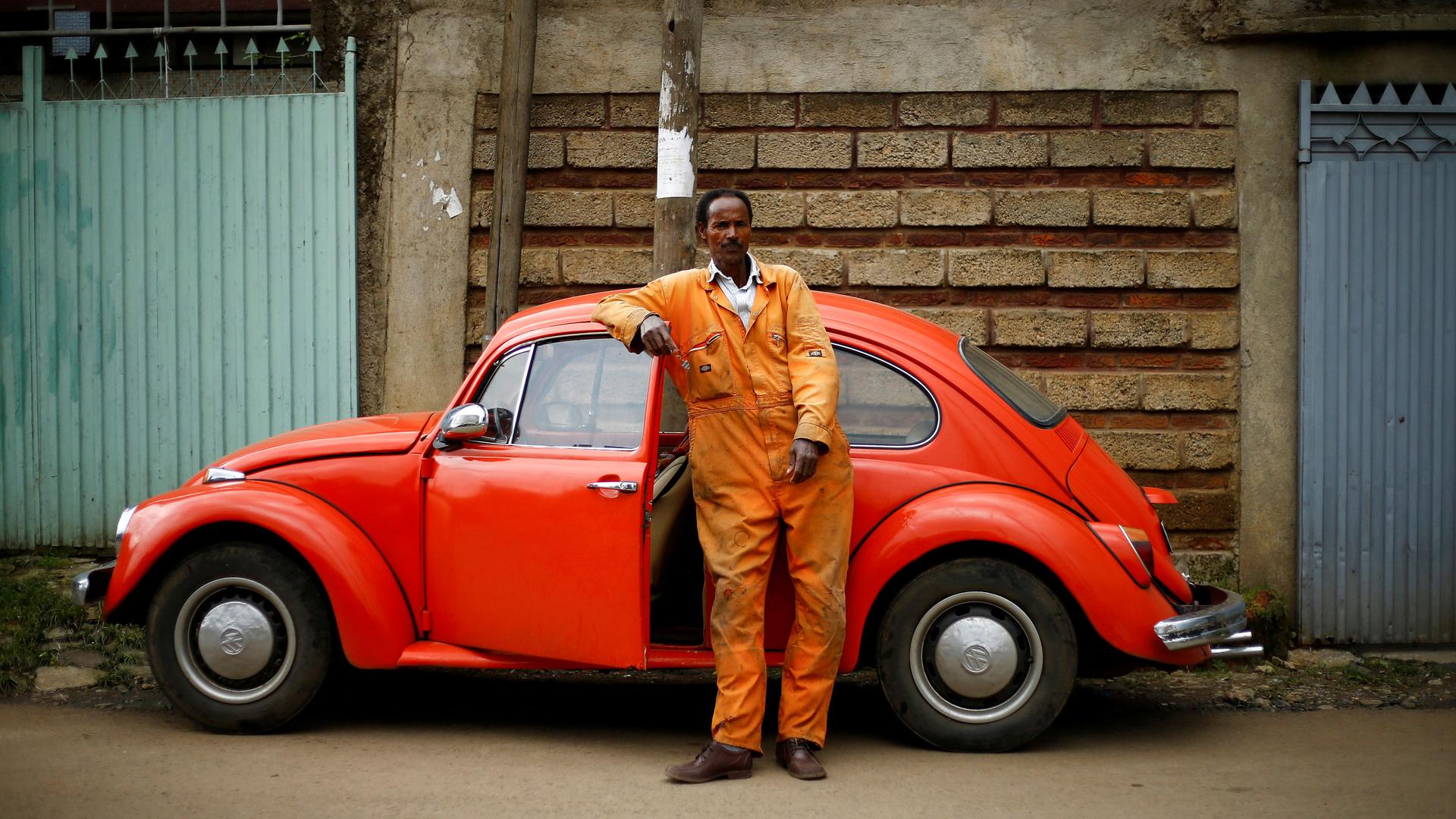The Beetle was born in the 1930s out of dictator Adolf Hitler’s desire to produce a cheap “people’s car” for the German family. After World War II it sold in the tens of millions around the globe and in the 1960s even starred in a Disney movie as Herbie the “Love Bug.”

Production of the original version of the curvy little vehicles ended in 2003. And Wednesday, Volkswagen will halt production of the last version of its revised Beetle model at its plant in Puebla, Mexico. The vehicle has symbolized many things over a history spanning eight decades since 1938.
In Ethiopia authentic spare parts of the original Beetle model are hard to come by. So mechanics there have to “slaughter” some cars to keep others alive.
“If one is in a bad condition, we will cannibalise it and give its parts to other cars. That is how we extend their life,” said Kinfe, the 74-year-old garage-owner who has been working on Beetles for six decades.

“The Volkswagen Beetle is a servant car for lower income people. They never fail you — they take you anywhere and have excellent functionality,” he said.

“I wish the Germans had continued producing them. They abandoned them and things started falling apart.”
“They are lovely cars,” said Teferi Markos, a mechanic in Kinfe’s garage. “You get satisfied when you fix them. If you want to change the colour, they absorb any paint.”
About 8,000 commercial and other vehicles are assembled in Ethiopia for the home market, about a quarter of them cars. The numbers of expensive imported models on the roads is also rising as a new middle class emerges.





This story was originally published by Reuters in 2017.
